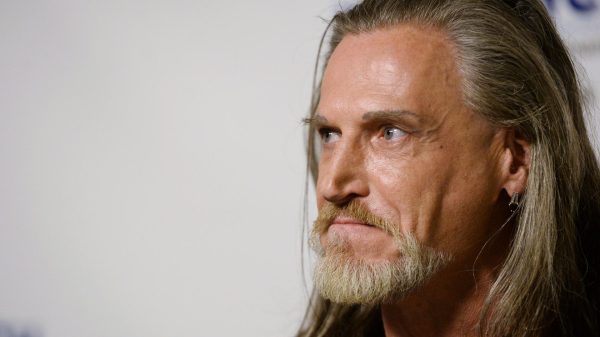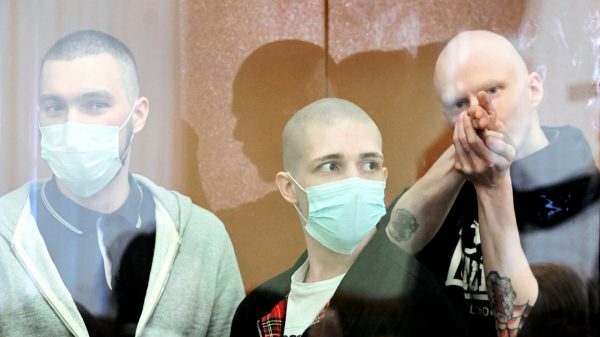
MOSCOW, April 8, Svetlana Vovk. The TV series «Alla Taxi» is airing on the Rossiya TV channel. It starred Roman Madyanov, Alexander Mikhailov, Olga Prokofieva, Andrei Chernyshov, Marat Basharov. Starring Svetlana Kolpakova, known for her work in “The Code,” “The Thaw,” “The Father’s Shore,” and “The Last Hero.” The actress spoke in an interview about how her character will inspire viewers, how the new project resonates with Soviet film hits, about working with Oleg Tabakov at the Chekhov Moscow Art Theater, and also about what “neo-glamor” is.— In the series “Alla Taxi” on the Rossiya TV channel, you play a woman deceived by her husband, whose son was also taken away. And to top it off, she goes to work as a taxi driver. The profession is not for women, men greet it with hostility. It seems to me that not everyone can withstand such blows of fate. Your heroine is a strong woman. How do you see her?

< br />
< br />
— If we were to characterize the image abstractly, then she is certainly not weak. True, I see her as different. Even from the point of view of acting, I find it more interesting. Of course, her nature is such that she overcomes all the traps that life circumstances set. But she is also vulnerable, because none of us can exist in one particular quality.
— What will she inspire the audience with first of all?
— Everyone, of course, will project something of their own onto their own destiny. But it resonates with me, first of all, with some sense of truth. And because he thinks not only about himself. She's such a savior. Even if everything is bad for her, but she sees a person in need, and we have a separate incident in each episode, then she — headlong into the pool — goes to support. This is akin to the Russian soul. She is real, without a background.
— In this project you had the chance to act with Alexander Mikhailov. Is the work of such luminaries, stars of the Soviet generation, different from the work of young actors?
“My observation both on the set and in the theater, where I worked with Oleg Pavlovich Tabakov, Andrei Myagkov, and Sergei Shakurov, is that these are people of action without any shame in the fact that they are of such magnitude. They do not rest in their profession, they are constantly in search, rushing to analyze scenes. But it’s amazing that they never teach. I would even like to get advice from them, but they themselves will never be the first to do this. There is such delicacy and culture in this. I have an excellent relationship with Alexander Yakovlevich Mikhailov. I am very kind to him. I had a larger partnership with him than, for example, with Roman Madyanov, but as an actress it was just a pleasure to watch him and enjoy his performance.
— Svetlana, in your filmography there are many heroines from the era of the 40-60s: “Cipher”, “Father’s Shore”, “Thaw”, “Artist”. As critics and viewers note, you were surprisingly able to convey the typical authenticity of that time. How much, in your opinion, has the psychology of women changed since then? What do you like about the ladies of that time and what do we moderns lack now?
— I often get compliments: how well you manage to play the heroines of those eras! This certainly explains the type. It seems to me that that time was more naive and sincere. There was no glamor in women. Although now this is also going away. I love rewatching “Moscow Doesn’t Believe in Tears”, “Girls”, “Office Romance”, “Love and Doves”. Everything seems so simple in them, but there is an incredible atmosphere that doesn’t exist now. I watched films with Nina Mikhailovna Doroshina so many times, because she is generally my favorite teacher. Nowadays people are nostalgic for past times. And you know, I think “Alla Taxi” is such a greeting there, in that era, although the series is about us, about our time. This is an attempt to create a story about simple truths, about something real, about faith, kindness, mutual understanding. The director of the project, Raif Kubaev, called this film a folk comedy. The musical component is of great importance in the series — songs performed by Alexander Yakovlevich Mikhailov. Each episode ends with a new composition.

< br />
< br />
< br />
— In one of your interviews you called yourself unglamorous. What did you mean?
— By the way, maybe I didn’t say that with a plus sign. I don’t attend any social events idle. Now they have stopped inviting people. I am for individuality, for changing myself for the better, but so that it is within the framework of my nature. But I don’t flaunt this in any way — you’re all like this, but I’m different. For example, when I come to a presentation of a project, I am very embarrassed to take pictures. You need to somehow stand up correctly and show off your outfit. And it would be good to be able to do this.
— In “The Thaw” your heroine —the wife of a famous director, played by Mikhail Efremov. She is younger than him, clearly with such rustic worldly wisdom, and manipulates her husband quite well. As the saying goes: man—head, and a woman—neck, where he turns, that’s where he will look. How do you feel about this distribution of roles in the family?
— Excellent distribution of roles. As they say, a happy husband is a henpecked husband. I say this with irony, of course. Yes, it happens in different ways, and roles can change, people adapt to each other, work on themselves. There is a wonderful method: set up a camera and film yourself for at least a day, how you communicate, how you behave. You will see a lot of things and understand that you can change.
— You played a wonderful role in the TV series “Cipher” as a forensic expert—thedaughter of a general. A sequel should be out soon. Will you be there?
— Yes. And my heroine will find happiness in love — finally. With her strong-willed character, this was not easy.
— You have a small but very bright role of the young Baba Yaga in the film “The Last Hero.” She turned out to be so comedic and sexy. Was it an interesting experience?
— I honestly admit that when I arrived in Abkhazia for the first days of filming, I thought that they would tell me: let’s pack my suitcase and go back. It seemed to me that I was completely unable to play in a fairy tale. This was my first experience in cinema. I didn’t understand how to exist with my nose glued on, with such makeup. 



 < br />
< br />
— Svetlana, you have an absolutely crazy theatrical career. You came to the Moscow Art Theater under Tabakov. And you somehow had a lot of interesting jobs at once. What role did Oleg Pavlovich play in your happy acting career? What do you personally remember most about him?
— Such people are probably born once in a century. He is a completely unique personality; one immediately remembers his kindness and charm. He always helped, gave a lot of work to young artists, without starting their journey as an extra. When we met with him on stage, at rehearsals, there was no hierarchy — there was a partnership, a joint search. And I didn’t feel pressure, but a good professional process. On his part there was the same obedience to the director.

























































Свежие комментарии